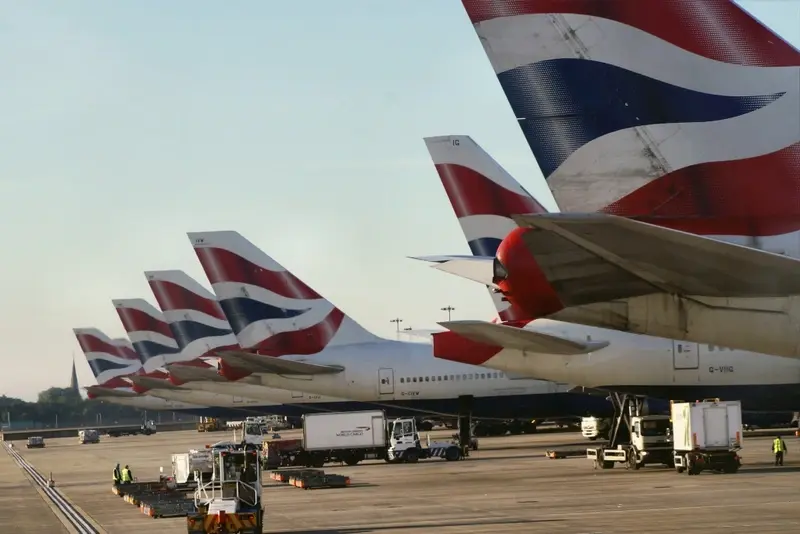
Shares in British Airways-owner International Consolidated Airlines (IAG) gained 2.3% to 93.2p despite the company swinging to a huge third quarter loss with its planes less than half full.
IAG became the latest airline to reveal how the coronavirus pandemic has continued to impact air travel after reporting a €2 billion pre-tax loss in the three months to 30 September, compared to a €1.26 billion profit in the same period a year ago.
Revenue tumbled 82% to €1.2 billion, while the results also included an exceptional cost of €275 million related to employee restructuring at British Airways and another IAG airline, Aer Lingus.
PLANES ONLY HALF FULL
Not helping IAG was a big drop off in the amount of passengers it had on its planes which were up and running, with the firm reporting a passenger load factor (i.e. how full the planes are) of just 48.9%, compared to 87.7% in the same quarter last year.
For reference the International Air Transport Association (IATA) estimates, based on a sample of 122 airlines, that on average airlines need a load factor of 77% to break even.
By comparison, the London-listed budget airlines have been reporting load factors of around 65-70%.
IAG said, ‘The third quarter marked an improvement on the second quarter, partly driven by summer leisure demand, but the business continued to be adversely affected by volatile government restrictions and quarantine requirements.’
Looking ahead, IAG added that it would take until at least 2023 for passenger demand to reach the levels of 2019.
AJ Bell investment director Russ Mould said the problem for IAG and other airlines is that they incur huge costs even when planes are not in the air and stand to lose millions or even billions when passenger volumes are this depressed.
He added, ‘On the flip-side if they take out too much capacity they could find their ability to recover materially compromised.
‘The question in the short term is whether the money raised in September’s rights issue will be enough to see the company through the current turbulence.’
TUI AND EASYJET SELL PLANES TO RAISE CASH
Meanwhile a number of firms are looking to sell and lease back aircraft they own in a bid to raise more cash.
Tour operator TUI (TUI) announced such a deal today, signing a sale and leaseback agreement with BOC Aviation for two new Boeing 737 MAX-8 aircraft for a combined €76 million.
The agreement is set to create a total lifetime lease obligation of around €88 million for TUI, which will start by the end of its 2021 financial year.
A few days ago budget airline EasyJet (EZJ) raised £305.7 million after selling and leasing back nine of its Airbus A320s with two separate leasing companies.
Following the transaction EasyJet will own outright 152 aircraft, representing around 44% of its fleet. But the firm suggested this number may fall further as it continues to ‘assess further funding options, including those that exist in the robust sale and leaseback market.’



